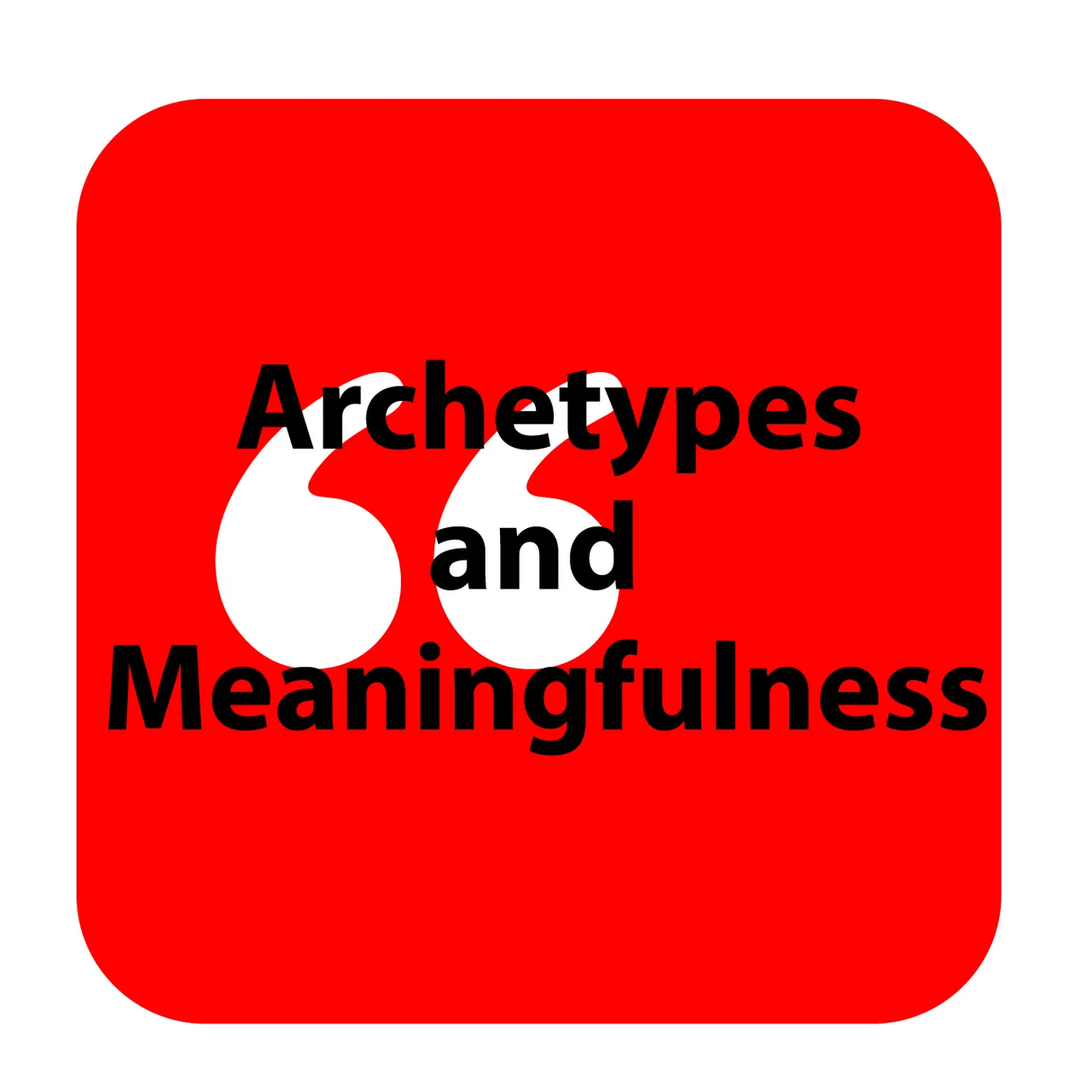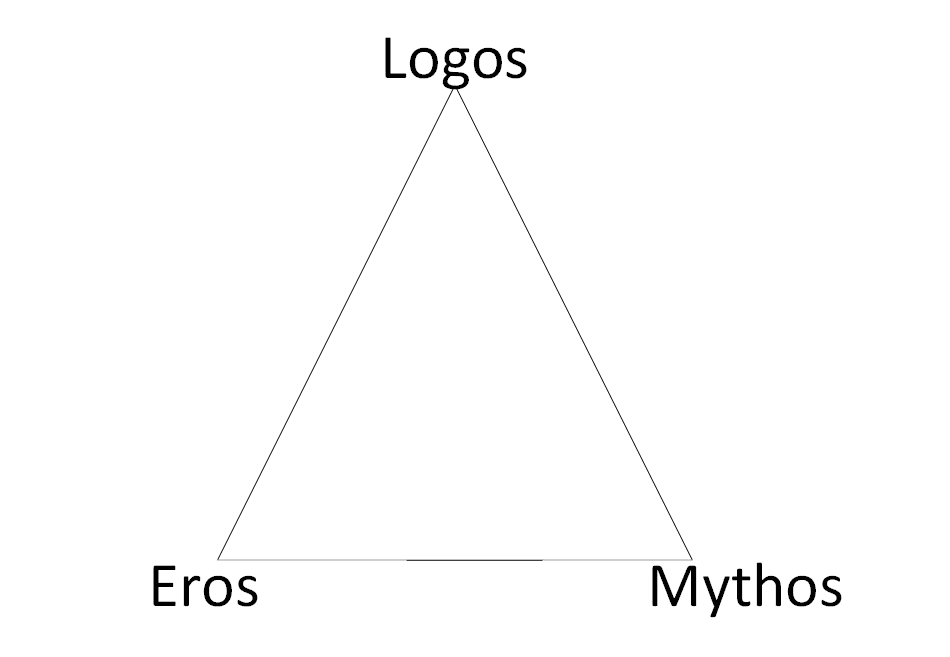
The persistence of social patterns of association, and the roles that are designated within those patterns of association, according to Carl Jung, are archetypal. That is, they have been established and are maintained within the collective unconscious which is shared between all people regardless of cultural or social differences. As Murray Stein notes, “archetypes are not derived from culture; rather cultural forms (in Jung’s theory) are derived from archetypes” (Stein, 1998, p. 127). This applies to the content of our stories in much the same way that it applies to the roles and functions that characters within those stories are designated to play.
In this way, and as Aslem Strauss notes, the continuities of our “personal experience are systematically related to those provided by [our] social structure, but are not assured by [that] social structure” (Strauss, 2017, p. 32). Moreover, as Marie-Louise von Franz indicates,
“Although we are herd animals and are therefore only happy when we can function as social beings, there nevertheless persists along with this longing for one’s uniqueness and for a ‘meaning’ in one’s own life that goes deeper than mere social adjustment” (Franz, 1999, p. 222).Jung’s great insight was to identify and map the extent to which we are able to find meaning in the roles that we are called upon to play. Jung saw this as part of a process of individuation in which the different elements of our psyche are reconciled and transcended, leading to greater personal and social cohesiveness. Individuation, therefore, is an interactive process that is situated in a social setting, but which is subject to both patterns of stasis and variability at deep rooted levels of our psyches. As Anselm Strauss points out, the members of different groups are “able to participate in various coordinated activities because they share a common terminology.”
Groups form, according to Strauss, “around points of agreement,” in which “new classifications arise on the basis of further shared experience” (Strauss, 2017, p. 151). What is important to note and understand, however, is not the extent to which those relationships and identities are projected within this shared experience, but the extent to which those roles are an expression of the archetypal function that has been established in the long-term which shapes and regulates the symbolic potential for people acting in their social realms.
Hence, if we follow this Jungian approach, and seek to understand the archetypal functions of our collective unconscious, we can come to understand how human social relationships form, what their characteristics and expression of behaviour might be, and in what way we can adapt our social and interpersonal practices to take account of this richer and multidimensional view of each other and the world. This archetypal view challenges the extent to which we accept that our social models are an expression of the organisation of the networks of interacting agents, and instead, it asks us to consider the extent to which the “symbolic nature of groups raises intricate questions concerning membership” (Strauss, 2017, p. 151).
In other words, social patterns of association, behaviour and identity are formed from archetypal structures deep within the human collective psyche. In socialmeaning terms archetypal structures and patterns within our psyche form the variations in the topography of symbolic interaction. They are the influencing fields that shape our journeys, and provide the background structure from which we form relationships and take roles. This is because we are following the underlying archetypal structure, much in the way that a sailing boat follows the tide and the wind out in the ocean. We are following the archetypal forces that are shaping our engagement with one another.

In modern society, as defined as that which comes after the Middle Ages, i.e. from the Reformation through to the Enlightenment, with the industrial age, and the globalisation of communications and commerce, human development, in the West at least, has been focussed on rationalism and sensationalism. In other words, moderns have become a society that prioritises Logos and Eros. Subsequently, we have moved away from a consideration or affinity towards and with Mythos.
Modern thinkers are expert in asking how things can be measured, calculated, tracked, plotted, and so on. Modern people are expert in pursuing happiness and sensual satisfaction, but we are less proficient at asking what things mean and how we might find understanding that goes beyond the measurable or the sensational. Jung referred to this as the loss of the capacity to experience the numinous.
In contemporary Westernised society we spend our time rationalising and calculating responses to one another’s goals and interests. We focus, predominantly, on the quantitative and not the qualitative aspects of social experience. As Clive James noted in his study of Cultural Amnesia, “technology not only has given us a permanent present, but has given it the furniture of eternity. We can cocoon ourselves, if we wish, in a new provincialism more powerful than any of the past empires” (James, 2012, p. xxi). Von Franz summarised this predicament succinctly when she wrote
“We are living in a time in which the problem of human relationships has become more urgent than ever before. The reasons for this are well known: the development of technology has brought about rationalism and led to the industrialisation of our society. Small rural communities with their closely woven network of personal relationships have dissolved or are dissolving. The inhabitants of the great industrial cities live side by side like strangers. All are oppressed by the thought of their own insignificance in the face of the grey meaningless mass of unknown people surrounding them. With the exception of small groups held together by common religious convictions or shared customs, there exists only communities of interest, which are bound together by commercial, sports-related, or political interests and in general any sort of deeper personal bonding is not present” (Franz, 1999, p. 243).Despite this pervasive sense of alienation, which the meta-modernists seek to address in thinking about the meaning crisis, we can still revisit and return to the archetypal patterns of thinking and sense-making that shape our social interactions (Freinacht, 2017, 2019). Robert Kegan suggests that it is possible to unpick the process by which we locate meaning within our social interactions. Kegan writes that
“Meaning is, in its origins, a physical activity (grasping, seeing), a social activity (it requires another), a survival activity (in doing it, we live). Meaning, understood in this way, is the primary human motion, irreducible. It cannot be divorced from the body, from social experience, or from the very survival of the organism. Meaning depends on someone who recognises you. Not meaning, by definition, is utterly lonely. Well-fed, warm, and free of disease, you may still perish if you cannot ‘mean’” (Kegan, 1982, p. 18).Equally, we might do well to heed the words of Michael Polanyi and Harry Prosch, who that
“We must not only unstop our ears so that we may hear our god speak to us, should he deign to do so; We must also seek to live in a kind of society in which such meanings as we have been exploring in this work are acknowledged to be real and worthy of respect and honour – and in which men are therefore also respected and honoured as creators and bearers of such meanings. If we cannot live in such a society, we shall find ourselves engaged collectively in the brutal task of stamping out those meanings on the grounds of some supposed social utility or for some overpowering cause’ – a frightful enterprise that modern man has undertaken (and is still undertaking) in this present century” (Polanyi & Prosch, 1975, p. 181).
Posted from my blog with SteemPress : https://decentered.co.uk/archetypes-and-meaningfulness/